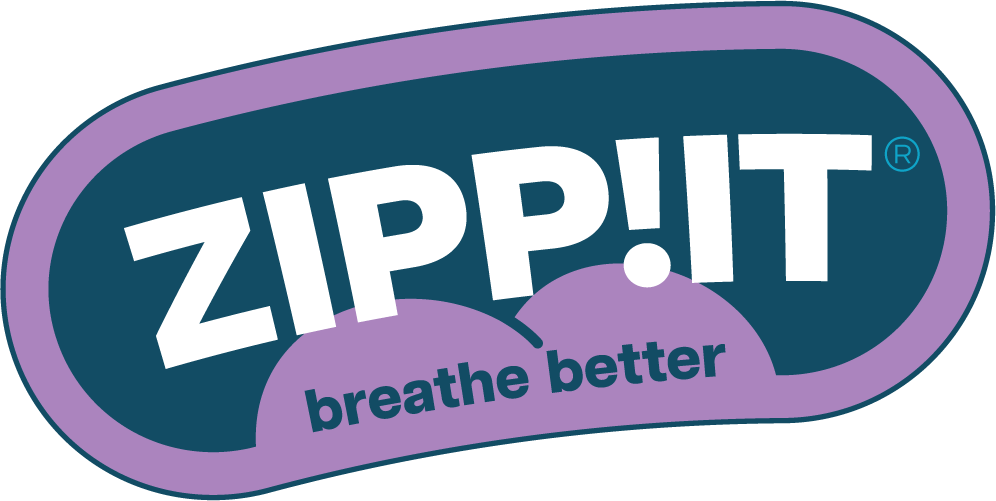Better sleep starts with your nose: the power of nasal breathing
Breathing is one of the most fundamental processes of the human body, yet we rarely pay attention to how we breathe, especially during sleep. However, this seemingly simple act can make a world of difference for your sleep quality and overall health. Many people wake up every day feeling tired, even though they’ve spent enough hours in bed. The cause is often sought in stress, a poor mattress, or an irregular sleep pattern, but rarely in breathing itself. Yet, increasing research shows that the way you breathe—through your nose or your mouth—directly affects the quality of your sleep, your daytime energy, and even your resistance to illness.
Nasal breathing is not just a detail; it is an essential part of a healthy sleep routine. Breathing through your nose triggers a series of biological processes that significantly improve your sleep quality. It ensures better oxygen uptake, stimulates the production of important substances like nitric oxide, and supports your body’s natural recovery mechanisms. In this article, we’ll dive deeper into the science behind nasal breathing, explain why mouth breathing has so many disadvantages, and provide practical tips to optimize your breathing. Whether you snore, regularly wake up with a dry mouth, or simply long for deeper, more restorative sleep—the key literally lies right under your nose.

The Fundamental Difference Between Nasal Breathing and Mouth Breathing
At first glance, it may not seem to matter whether you breathe through your nose or your mouth. Yet the differences are significant and have far-reaching consequences for your health, especially during sleep. The nose is designed as an advanced filtration system. When you breathe through your nose, the air is not only filtered of dust, pollen, and bacteria, but also warmed and humidified before it reaches your lungs. This protects your airways and ensures your lungs can function optimally.
One of the most important processes that only works properly with nasal breathing is the production of nitric oxide. This gas, produced in the nasal cavities, plays a crucial role in the oxygen uptake of the blood. It dilates the blood vessels, improves circulation, and helps reduce inflammation. As a result, your body gets exactly what it needs during sleep: enough oxygen and an optimal environment for recovery.
If, on the other hand, you breathe through your mouth, you bypass this entire system. The air enters unfiltered and cold, which can irritate and dry out your airways. Moreover, the production of nitric oxide is missed, reducing your oxygen uptake and recovery capacity. This leads to a series of negative effects:
- A disturbed oxygen balance in the blood, causing you to sleep less deeply and wake up more often.
- A dry mouth and throat, which is not only uncomfortable but also increases the risk of tooth decay and throat infections.
- A higher chance of snoring and sleep apnea, as mouth breathing keeps the airways less open.
- Less time in the deep sleep phases, resulting in poorer physical recovery.
Dr. Mark Burhenne, a leading sleep expert, compares mouth breathing to breathing through a straw: it takes more effort, yields less, and disrupts the rest your body so desperately needs. As a result, your heart rate remains higher and your stress levels elevated, even while you sleep. The restorative power of sleep is thus seriously undermined.
Scientifically Proven Benefits of Nasal Breathing
The benefits of nasal breathing are not just theoretical; they are confirmed by a growing number of scientific studies. For example, research published in the Journal of Clinical Sleep Medicine shows that people who consistently breathe through their nose during sleep sleep up to 25% more efficiently. This means they get more recovery from the same amount of sleep, resulting in more energy and better health.
An important but often overlooked aspect is the influence of nasal breathing on the nervous system. Breathing through your nose activates the parasympathetic nervous system, also known as the ‘rest-and-digest’ mode. This causes your heart rate to drop, your muscles to relax, and your body to recover optimally. Mouth breathing, on the other hand, stimulates the sympathetic nervous system—the ‘fight-or-flight’ mode—keeping your body in a state of mild alertness. This difference is measurable in your heart rate variability, an important indicator of overall health.
The main benefits of nasal breathing during sleep at a glance:
- Up to 20% more oxygen uptake, directly contributing to deeper and more restorative sleep.
- A regulated breathing rate: slower and deeper breathing leads to more relaxation.
- Increased production of melatonin, the hormone that regulates your sleep-wake cycle.
- More time in REM sleep, the phase in which you recover mentally and emotionally.
- Fewer inflammatory responses, thanks to the production of nitric oxide.
Do You Recognize These Signs of Mouth Breathing During Sleep?
Many people are unaware that they are breathing incorrectly during sleep. Yet there are clear signs that may indicate mouth breathing or a disturbed breathing pattern:
- A dry mouth and throat upon waking, often accompanied by thirst.
- Morning headaches, caused by a lack of oxygen during the night.
- Fatigue, even after a long night’s sleep.
- Snoring or audible breathing, indicating an obstruction in the airways.
- Waking up frequently, without a clear reason.
- Dental problems, such as cavities or inflamed gums, often associated with a dry mouth.
A simple self-test is to use a small piece of hypoallergenic tape over your lips before going to bed. If the tape is loose or displaced in the morning, there’s a good chance you unconsciously breathed through your mouth. This insight can be the start of a positive change in your sleep habits.
Practical Steps to Optimize Nasal Breathing for Better Sleep
Fortunately, you can train your body to breathe through your nose again, even during sleep. Here are some proven methods and adjustments:
Daily Exercises for Better Nasal Breathing:
- Conscious nasal breathing sessions: Take 5–10 minutes three times a day to consciously breathe slowly and deeply through your nose. Inhale for four seconds, hold for two seconds, exhale for six seconds.
- Alternate nostril breathing (Nadi Shodhana): Alternately close one nostril and breathe calmly in and out through the other. This calms the nervous system and opens the airways.
- Nasal resistance training: Breathe against light resistance, for example by gently pinching your nostrils. This strengthens the muscles around your nose and improves airflow.
Adjustments to Your Sleep Environment:
- Humidification: A humidifier prevents drying of the nasal mucosa, especially in winter or with air conditioning.
- Elevated headboard: Slightly raising your headboard keeps your airway more open.
- Allergen control: Keep your bedroom clean and free of dust, pet hair, and pollen to prevent nasal congestion.
Tools for Better Nasal Breathing:
- Nasal strips: These widen the nostrils and reduce resistance when inhaling.
- Mouth tape: A small piece of tape over the lips encourages nasal breathing.
- Tongue posture training: Learn to place your tongue against the roof of your mouth, which keeps the airway open and supports nasal breathing.

Start Sleeping Better Today with Nasal Breathing
Improving your breathing is not a quick fix, but a process that requires time and attention. See it as laying a solid foundation for your sleep health. With every night you consciously breathe through your nose, you train your body to recover more efficiently and sleep more deeply. The benefits are noticeable in every aspect of your daily life: more energy, a clearer mind, a stronger immune system, and a lower risk of chronic complaints.
Start small, for example with a daily breathing exercise or by using a humidifier. Experiment with nasal strips or mouth tape if you notice you’re still breathing through your mouth at night. Above all, stay consistent; change takes time, but the results are more than worth it.
Tonight, before you go to sleep, take a moment to consciously breathe through your nose. Feel the air flow into your nasal passages, being warmed and humidified, and reaching your lungs. This is breathing as nature intended—and it is the key to a night’s rest that truly renews your body and mind. Give yourself the chance to experience how great the difference can be. Better sleep begins with one conscious breath, exactly where it belongs: through your nose.


